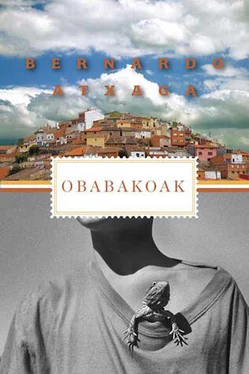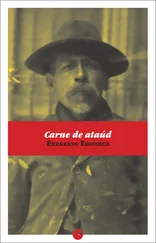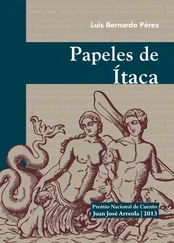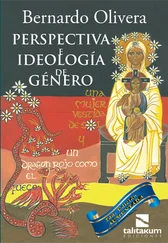Bernardo Atxaga - Obabakoak
Здесь есть возможность читать онлайн «Bernardo Atxaga - Obabakoak» весь текст электронной книги совершенно бесплатно (целиком полную версию без сокращений). В некоторых случаях можно слушать аудио, скачать через торрент в формате fb2 и присутствует краткое содержание. Год выпуска: 2010, Издательство: Graywolf Press, Жанр: Современная проза, на английском языке. Описание произведения, (предисловие) а так же отзывы посетителей доступны на портале библиотеки ЛибКат.
- Название:Obabakoak
- Автор:
- Издательство:Graywolf Press
- Жанр:
- Год:2010
- ISBN:нет данных
- Рейтинг книги:3 / 5. Голосов: 1
-
Избранное:Добавить в избранное
- Отзывы:
-
Ваша оценка:
- 60
- 1
- 2
- 3
- 4
- 5
Obabakoak: краткое содержание, описание и аннотация
Предлагаем к чтению аннотацию, описание, краткое содержание или предисловие (зависит от того, что написал сам автор книги «Obabakoak»). Если вы не нашли необходимую информацию о книге — напишите в комментариях, мы постараемся отыскать её.
Obabakoak
The Observer
Obabakoak — читать онлайн бесплатно полную книгу (весь текст) целиком
Ниже представлен текст книги, разбитый по страницам. Система сохранения места последней прочитанной страницы, позволяет с удобством читать онлайн бесплатно книгу «Obabakoak», без необходимости каждый раз заново искать на чём Вы остановились. Поставьте закладку, и сможете в любой момент перейти на страницу, на которой закончили чтение.
Интервал:
Закладка:
‘Did you see the state they were in? They could barely control their legs!’ one of us said, breaking the silence that had fallen over the group. ‘You’re right, they were absolutely shattered. The main group will soon catch up with them,’ said another in support of this. ‘Hilario’s probably saving himself for the final attack. It’s almost better that way. You know what a great finishing sprint he’s got…!’ said another.”
And the main group passed and no sign of Hilario,” my friend guessed, silently pointing to the lights in the valley below us. The lights of Obaba.
“Well, we didn’t see him at any rate. We saw a caravan of publicity cars, we saw motorcyclists in black leather, we saw cyclists of all sizes and colors, but as for Hilario, not a sign. And when the main group whistled past and headed off downhill, we were all confused, we didn’t know what to think. ‘What’s going on?’ one of us exclaimed angrily. Because it seemed more like a cruel blow from fate rather than any failure on the part of Hilario.
And so, slightly crestfallen, we started walking down the hill, home. ‘The one time the race comes through Obaba and he has to go and fall off,’ said the one rather angry member of our group. ‘Fallen off?’ the rest of us exclaimed. ‘Of course he must have fallen off! Why else would he drop out?’ he argued. ‘Knowing how tough Hilario is, it must have been a really bad fall. You don’t think he could have hurt himself, do you?’ asked the youngest among us.
Soon we were all sorrowing over the misfortune that must have overtaken that flower of Obaba, our knight, Hilario. And then, when we’d reached that wide curve we passed just a short time ago, we heard the sound of car horns. We looked back and… I bet you can’t imagine what we saw. Well, we saw a worn-out old truck with a big broom attached and in front of the truck…”
“Hilario!” said my friend.
“That’s right! Hilario in his black shorts! Hilario in his bright-colored jersey!
A hole opened up in our stomachs. ‘He’s coming in last!’ we shouted, almost on the verge of tears. And at that precise moment, possibly out of respect for us and for our disillusion, the sun slid behind a cloud.
I don’t know how long we stood there, openmouthed and with that hole inside us. As far as I was concerned, the moment seemed an eternity. And, at last, when both truck and cyclist reached us, a querulous cry left our throats: ‘Come on, Hilario!’ …
And with that shout both the cycling race and our childhood ended.”
My friend thought highly of the story and advised me to try and get it published. In his opinion it certainly didn’t belong in the category of the “futile, empty, and trite” and therefore fulfilled one of the conditions of good literature. Any reader could see him or herself reflected in that mirror full of children and bicycles.
Although grateful for my friend’s kind words, I had no intention of following his advice. Publishing my memories of a cycling idol seemed an irrelevance, especially since for me the search for the last word — of the other story, the one about the lizards — was becoming ever more pressing. But, immediately following our conversation, on the next bend, something unusual happened, an event I did feel obliged to record. “It is not for the writer to scatter stories that chance has brought together,” I thought, and I acted accordingly.
So on with the story of what happened along the road. But before I do anything else, I would first like to refer to a letter the writer Théophile Gautier wrote shortly after passing through a village very similar to Obaba, for what he said in that letter very much expresses what my friend and I felt at that point on our journey.
Gautier recounts the following story to his esteemed friend Madame Devilier:
When I got there the village was holding a celebration and everyone was gathered in the square. I joined those men and women of the countryside and do you know what I saw? A fine crystal glass had been placed on the ground and a dancer with right powerful, agile legs was spinning and turning around it. He would dance away from the vase, approach it and again move away; sometimes, when he leaped into the air, for example, it seemed he would fall on top of the fragile glass, that he would trample and break it. But at the very last moment, his legs would part and he would dance on, smiling and happy, as if it cost him not the least effort. Then he would move away, draw near and move away again. However, as the turns he gave around the glass grew ever tighter, one felt he must inevitably crush it, so much so that, in expectation of that outcome, we who were gathered there, found ourselves breathing to the rhythm of the bells the dancer wore on his ankles, our anxiety waxing and waning in time to them.
Suddenly, the whole square fell silent, the bells too. The dancer sidestepped the glass just barely brushing it. Realising that this jump would be the last, I closed my eyes, just as I would to avoid seeing the fatal axe blow dealt by the executioner. Then I heard an explosion of applause. I opened my eyes again and there stood the glass, intact. The dancer gaily scooped it up from the ground and drank the white wine it contained.
That dance had a profound effect on me. It seemed to me that women and men like you and me are just like that crystal glass and that very often we feel as if there were some invisible dancer turning and spinning around us, the dancer who bestows, directs and snatches away life, the dancer who, clumsier than that dancer in the square, will one day fall upon us and shatter us.
Gautier was not lying. The dance really did have a profound effect on him and he never forgot it. The proof is another passage that appears in chapter 9 of his memoirs:
Once, when I was staying in Madame Cassis’ house, I suddenly remembered an old friend of mine. And no sooner had I mentioned his name than that same friend, whom I believed to be in Greece, appeared as if by magic in the room. A shiver ran through me, because that same week I had experienced two other coups d’hasard. I had a feeling that hidden forces were walking behind me and were determined to sport with me, the way a dancer spins and plays around a glass tumbler.
But that’s enough of Théophile Gautier and of the two long quotes I chose as illustrations of a most unusual feeling. It’s time to move on again to the “next bend” in the road, to what happened when my friend and I had almost reached Obaba and were within sight of the palm tree hung with lights that the uncle from Montevideo had left switched on, as he always did when he was expecting visitors.
We were driving down the middle of the road, chatting about that habit of my uncle’s, when, suddenly, after bend number twelve, we saw a car parked at the side of the road. A red Lancia.
“Isn’t that—?” I began. But before I could finish my question, the person I was thinking of emerged from behind a thicket.
“Ismael!” exclaimed my friend.
By then our headlights were full on him and you could see with absolute clarity the small flattened head and the round eye peeping out from the hollow formed by Ismael’s cupped hands.
“Did you see what he’s got in his hands?” I said.
“There’s no doubt about it,” whispered my friend, “it’s a lizard.”
It was then that we felt the proximity of that dancer who bestows, directs, and snatches away life. I don’t know how much it was just a consequence of our tiredness and the idle talk we’d enjoyed that night. Perhaps we’d talked and drunk too much, but whatever the reason, the fact is we were frightened. It seemed to us that, like Gautier, we too were at the mercy of dark forces, the same forces that had planned and organized many of the things that had happened to us prior to that night: They had furnished us with the opportunity to enlarge the school photograph; they had called our attention to the lizard held next to Albino María’s ear; they had arranged for us to discover the article on lizards and mental pathology.
Читать дальшеИнтервал:
Закладка:
Похожие книги на «Obabakoak»
Представляем Вашему вниманию похожие книги на «Obabakoak» списком для выбора. Мы отобрали схожую по названию и смыслу литературу в надежде предоставить читателям больше вариантов отыскать новые, интересные, ещё непрочитанные произведения.
Обсуждение, отзывы о книге «Obabakoak» и просто собственные мнения читателей. Оставьте ваши комментарии, напишите, что Вы думаете о произведении, его смысле или главных героях. Укажите что конкретно понравилось, а что нет, и почему Вы так считаете.











